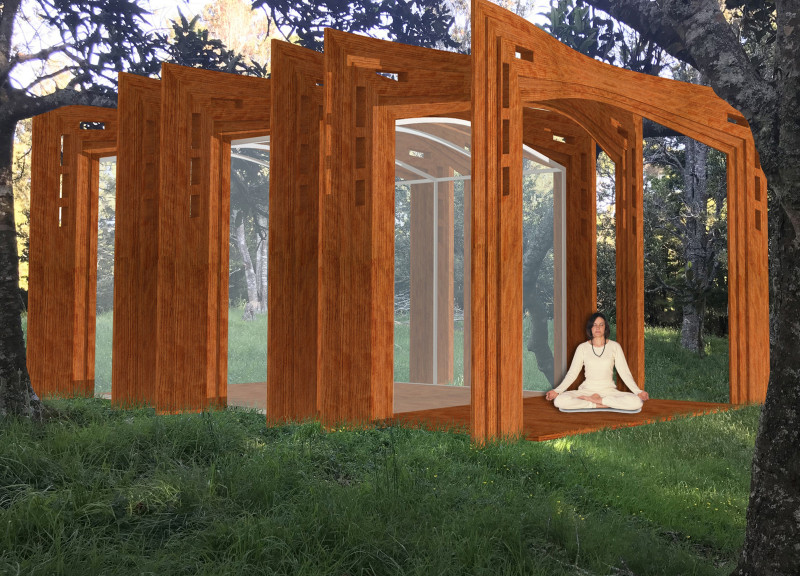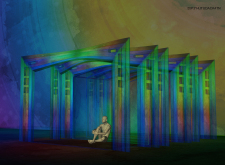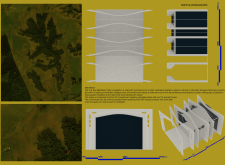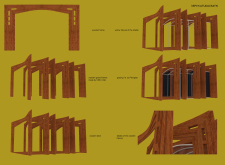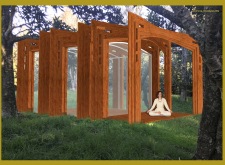5 key facts about this project
The Tiny Kiwi Meditation Cabin is located in a peaceful clearing within the New Zealand bush, designed to provide a refuge for meditation and relaxation. It focuses on connecting people to nature through its thoughtful design. The concept behind the cabin encourages tranquility and mindfulness while integrating the natural landscape with the built environment.
Spatial Arrangement
The cabin features a clear balance between enclosed and open areas. About two-thirds of the structure is covered with plexiglass sheets, allowing sunlight to brighten the interior while keeping it protected from inclement weather. This enclosed area serves multiple functions, acting as a meditation space and a workspace for processing flower essences from local plants. A small altar is included to create a focused and contemplative atmosphere.
Outdoor Engagement
The remaining one-third of the cabin is an open terrace that connects guests directly to the landscape. This outdoor space encourages visitors to engage with the surrounding nature, offering a place for quiet reflection or group meditations in the open air. The combination of covered and open areas creates a versatile environment, accommodating both communal practices and individual moments of solitude.
Construction Techniques
The structure’s strength is achieved through well-designed wooden elements. The use of wooden frames and window constructions adds to the stability of the cabin. Wooden glued frames crafted with CNC milling technology ensure precision while maintaining an appealing appearance. These building methods contribute to the quality of the overall structure and reinforce its connection with the natural surroundings.
Materiality and Texture
Careful choices in materials enhance the cabin's design. The wooden frames and plexiglass play essential roles in creating warmth and openness. The design includes a wooden deck that extends the usable space for outdoor activities, allowing users to engage more fully with their environment. These elements reflect a design philosophy that values ecological sensitivity and user experience, emphasizing the importance of nature in promoting well-being.


